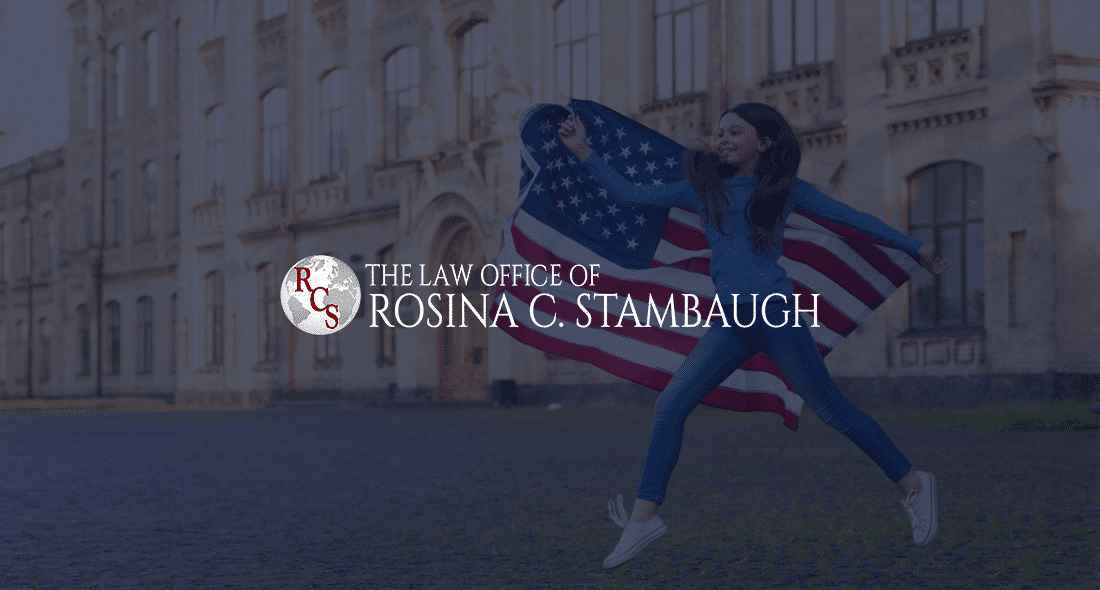Understanding the difference between “unlawful presence” vs “out of status” designations is critical for anyone navigating U.S. immigration law. While the two terms may sound similar, they carry different meanings and consequences. Being “out of status” means a person violates the terms of their visa. “Unlawful presence” means the government counts time in the U.S. that can trigger serious immigration penalties, including bars to reentry. Knowing the distinction can help you avoid penalties that affect future visas, green cards, or the ability to return to the United States. At the Law Office of Rosina C. Stambaugh, we help individuals and families facing complex immigration challenges, including issues related to unlawful presence and out-of-status situations. Based in York, Pennsylvania, and serving clients nationwide, Rosina Stambaugh is a dedicated immigration attorney with years of experience representing clients in deportation cases, bond release hearings, asylum cases, and federal court challenges to government decisions. We are here to help.
Visas, Grace Periods, and Out of Status
A noncitizen becomes out of status when they enter the U.S. legally but violate the terms of their visa or fail to maintain their immigration status. Common examples of being out of status include:
- A student who stops attending school while on an F-1 visa,
- A visitor who overstays their authorized stay, or
- A noncitizen who works without work authorization.
When the noncitizen violates their status or their status expires, they become “out of status,” meaning they do not have current, valid immigration status under U.S. law. As a result, they may become deportable. Until and unless they find a way to get status back, they may have to leave the U.S. If they do not, they may begin accruing unlawful presence. Some visas offer grace periods that give you limited extra time to prepare to leave, switch to another program, or apply for a different status. These grace periods are specific to visa types. If you remain beyond the grace period or fail to comply with the visa’s conditions, you become out of status. Being out of status does not always mean you immediately accrue unlawful presence. Depending on the specific circumstances, however, someone who is out of status may be deportable.
What Is Unlawful Presence?
Unlawful presence is the time a noncitizen spends in the U.S. without legal authorization. You accrue unlawful presence based on the number of days you are physically present in the U.S. without status. Minors do not begin to accrue unlawful presence until they turn 18.
When Unlawful Presence Begins
The point at which you begin to accrue unlawful presence depends on your underlying status and how you entered the U.S. For example:
- Nonimmigrant visas with fixed end dates (like tourist or work visas) begin after the expiration date on your I-94;
- Student or exchange visitor visas begin when USCIS, an immigration judge, or the Board of Immigration Appeals makes a formal finding that you violated your status (not simply when you stop meeting your program requirements); and
- Entered without inspection (undocumented), begin right away.
The Consequences of Unlawful Presence
If you accrue between 180 days and one year of unlawful presence, you can be banned from returning to the U.S. for three years. If you accumulate a year or more, you can be banned for ten years. You may request a waiver of the ban in specific circumstances.
Interrupting Unlawful Presence
Although unlawful presence is often unforgiving, certain events can stop or interrupt unlawful presence accrual, such as:
- Filing an adjustment of status application,
- Pending asylum applications,
- Motions or appeals to immigration decisions, and
- Voluntary departure periods.
Departing the U.S. interrupts the clock on unlawful presence but does not erase time already accrued. For example, if you accrue 120 days of unlawful presence and then leave, you will begin again from day one, not day 121, if you return. Yet, the time you accrued before leaving remains on your record. For example, if you voluntarily leave after more than 180 days but less than one year, the three-year bar still applies.
Being Out of Status vs Unlawful Presence
Although related, the concepts of unlawful presence vs out of status serve different functions in U.S. immigration law. Unlawful presence is time that you accrue while living in the U.S. without lawful status. Undocumented individuals can accrue unlawful presence even if they have never had status. Accruing too much unlawful presence subjects you to potential bans on returning to the U.S. Each case depends on specific facts, and when unlawful presence starts is not always clear. Being out of status means you do not currently have valid immigration status. You are typically deportable if you are present in the U.S. without lawful status. So, if you go out of status, you may become deportable. Yet, several visas offer grace periods to depart the U.S. or find new employment while someone is technically out of status without counting that against them.
How the Law Office of Rosina C. Stambaugh Can Help
If you worry about whether you are out of status, accruing unlawful presence, or both, seek legal guidance right away. These issues involve complex rules and life-changing consequences. At the Law Office of Rosina C. Stambaugh, we help clients across the country understand their immigration options, defend against removal, and pursue relief that protects their future in the United States. We advocate relentlessly in bond hearings, asylum cases, family-based immigration, and federal court litigation. Our team explains each step clearly and has personal experience with the immigration system. If you have questions about unlawful presence or being out of status, contact our office today for answers.






